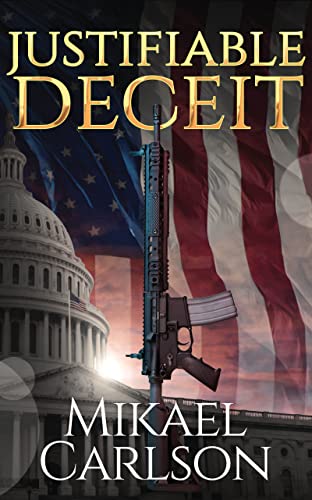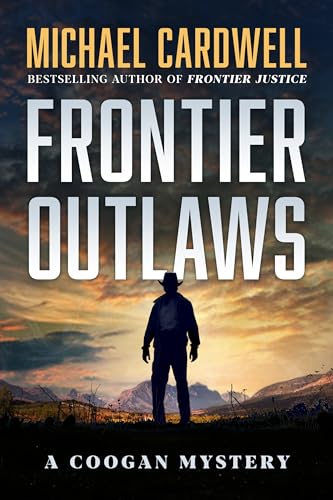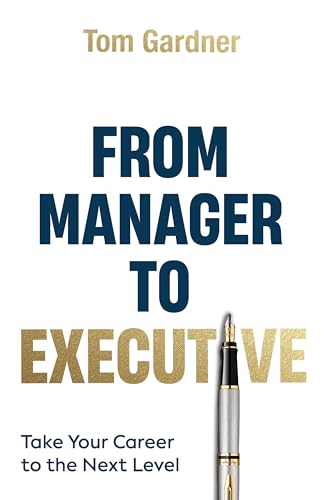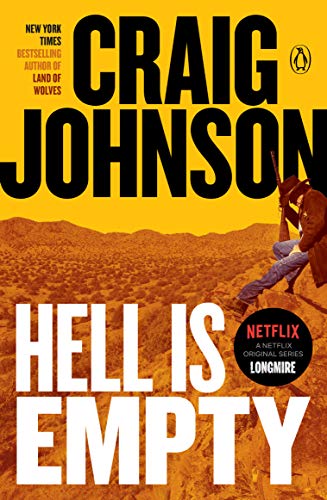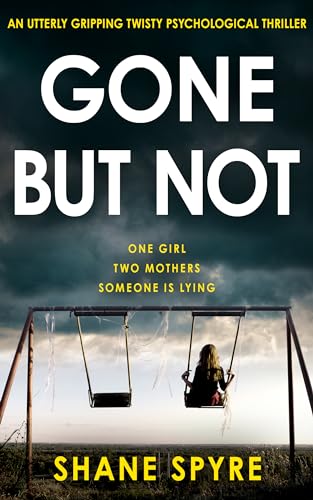Marsha Canham’s The Wind and The Sea:

The author hopes you will enjoy this free excerpt:
Prologue
Between the line of thick green foliage and the sparkling sweep of azure water lay a stretch of blindingly white sand. The sun was directly overhead, a fiery orb that caused the surface of the sea to shimmer like silver and the trees to droop in the heat. Now and then a gull circled, screaming mock commands at the row of sweating men and scorching cannon strung along the beach below. Periodically, a bleary eye was raised skyward and a curse was muttered; the absence of the normally huge flocks of scavengers was taken as an ill omen.
Everart Constantine Farrow crooked an eye above a dust-laden stone wall and peered out to sea. His voice was as ominous as approaching thunder as he spat a low warning over his shoulder.
“Any time now, lads. She’s got ‘er arse to the wind and she’s comin’ in fast. Keep yer ‘eads low and yer guns warm. She can’t be takin’ too much more punishment the likes we been givin’ ‘er, mark my words.”
Several red, powder-burned faces glanced in Verart’s direction but no voice dared to contradict him. It was the truth as far as Farrow was concerned, for he was not a man to admit defeat easily. The siege cannon had replied enthusiastically all morning to the broadsides unleashed from the warship Eagle and had left many marks on the oak decks of the American frigate. Still, a glance past the battlements would see the Barbary defenses badly mauled. Of the fifty-eight massive cannon originally commanded by Farrow’s men, fewer than twenty remained seated and functional. Out of a force of three hundred eager, strong men attempting to stave off the naval assault, fewer than one hundred and thirty were still alive. The stand of palm trees behind the line of defense was littered with the dead and dying. Pieces of bone and flesh hung from the branches, and the sand underfoot was stained crimson from the spill of blood.
“‘Ere she comes,” Verart murmured, watching the warship tack expertly to take advantage of the full lift of the wind. There were gaps blown through her sails and rigging, holes gouged in her sides, and at least one of the three main masts was cracked, rendering the top steering sails all but useless. Still the Eagle came on. Whoever was at her helm was a master of the sea.
Through his spyglass, Verart could see gaffers scrambling in the rigging, beginning to bend the fighting sails on orders from the helm. He could see the gunnery crews at their stations and the two decks of gleaming black cannon presenting their iron maws. In the stern, on the quarter-deck bridge, stood a group of uniformed officers, their white breeches and dark blue jackets unmistakable even at such a distance. A sudden flash of light skipping off brass made Verart’s skin prickle with the knowledge that he was being just as closely observed by the enemy.
The enemy, he mused, and spat in disdain. How in blazes had the American warship found Snake Island? Surely none of the Pasha’s men would have betrayed them; the Farrow stronghold represented staggering profits for the Dey of Algiers, as well as irreplaceable firepower to guard the approach to Tripoli. He could only assume that the war for control of the Mediterranean had taken a turn for the worse. If the Yankees could spare their ships to search out pockets of corsairs along the coastline, then it did not bode well for the fate of his brother, Duncan Farrow, and Duncan’s two ships, the Falconer and the Wild Goose.
Verart lowered the spyglass and growled loudly, “Court!”
A slender figure whose features were buried beneath layers of grime and oily sweat jumped up at once. “Yes, Uncle?”
“How do we stand for shot?”
“We have more than enough to hold them off,” was the confident reply. “We have double and grape a-plenty. Seagram has brought down more incendiaries, and we have enough to pepper a hundred fires if the bastards will just hold course.”
Verart chuckled and thumped the narrow shoulders affectionately. Huge emerald eyes shone up at his and startling white teeth broke through the grime in a smile that stirred the older man’s heart.
“Ah, Court, yer father will be proud of ye this day. I always held ye would do a proper turn when he needed it. I told ‘im havin’ a sprout like you was nothin’ less than the grandest feat of his miserable life.”
Courtney Farrow beamed under the praise, knowing her uncle rarely bestowed compliments and never unless they were heartily deserved. It made the aches and bruises in her body seem insignificant. It made the bleeding wound in her upper arm more of a trophy than a nuisance, and it made her wish more fervently than ever that she could single-handedly destroy the Yankee ship that was even now backing its sails into raking position.
The daughter of the most notorious pirate along the coast of North Africa was as lithe and well-honed as a decade of living amongst the corsairs could make her. She had the brilliant, bold green eyes of her father, the same dark auburn hair and quick Irish temper. From an early age, she was as apt to be found drilling on one of the smoking cannon as she was to be running her hands covetously over the rich silks and satins confiscated in prize cargoes.
“We will get her, won’t we, Uncle?” she asked tersely, her eyes blazing with sudden hatred. “We will be able to hold her off until Father returns?”
“Bah! Hold her off? We’ll sink the bitch into her own beakheads, we will. Moffins! Willard! Polks! Look lively on them guns, lads. A gold sovereign for each sharpshooter ye send to look sharper in the never after!”
The words had scarcely cleared his throat before a cheer went up along the beach and the guns roared to life. A hailstorm of grapeshot the size of musket balls, screaming tangles of chain, rockets, and red-hot iron balls hurled across the six hundred yards of churning blue water. The reply from the Eagle was swift and equally as lethal. Her starboard battery erupted with fire from both decks and in moments cloaked the sleek lines of the frigate in clouds of white, drifting smoke.
~~
Captain Willard Leach Jennings paced the width of the Eagle’s bridge, hands clasped behind his back emphasizing the bulk of his girth. He was a short, stubby strut of a man with a florid complexion that did not take kindly to the Mediterranean sun. Narrow, beady eyes were set between pudgy, red-veined cheeks, beneath a brow that arched high on a dome-shaped pate. Beside him, similarly attired in immaculate white breeches and dark blue naval tunic. was the Eagle’s second lieutenant, Otis Falworth.
“Well, Mr. Falworth,” the captain mused, “I see Mr. Ballantine is in his full glory.”
“Indeed, sir.” The junior officer sniffed through nostrils that were as inordinately long and narrow as his nose. “He does seem bent on winning the day unassisted.”
The officer to whom they referred, Lieutenant Adrian Ballantine, stood with his long legs braced against the roll and sway of the ship. His tunic was discarded, his shirt torn open from throat to waist, baring a wide vee of coppery brown hair. His face was sun-bronzed and angular; his thick wavy hair, once brown, was bleached to a pale gold by constant exposure to sea and sun. There were fine creases at the corners of his eyes, gained from squinting at tall, sunlit masts and distant horizons. Deeper lines were etched into the square jaw and around the firm, resolute mouth—lines drawn by experience and cool efficiency. He stood six feet tall, although the breadth of his powerful shoulders and the length of his tautly muscled legs made him seem far taller.
One of his arms was raised. Steely gray eyes were fastened on the shoreline as he issued commands to his gun captains, directing the ship’s long guns for the most effective range of fire.
Each time his arm descended, the starboard battery erupted with orange-flecked smoke as the twelve eighteen-pounder guns exploded almost simultaneously. The Eagle lurched violently with the recoils, the motion helping the crews who immediately hauled on the thick breeching tackle to pull the guns inboard for reloading. The snouts were reamed out, and fresh powder cartridges were fed into place. The iron shot was rammed into the muzzles; they were packed and primed, and one by one the gun captains turned their sweating, smoke-streaked faces toward Lieutenant Ballantine and shouted, “Clear!”
Ballantine was justifiably proud of his crew. They could fire three rounds per minute, if pressed, and their aim was so precise that even as formidable an emplacement as the sand-covered defenses of Snake Island was being systematically destroyed.
He shouted encouragement to the crew of bare-chested, blood-smeared gunners who fired steadily even though the rails and planking were being shot out from under them. The lower tier of guns was blasting as quickly and as efficiently as the upper. Ballantine mentally praised the chief gunner, Danby, as well as the helmsman, Loftus, who was holding fast to the course he had ordered. The men were eager and superbly trained. The Eagle was handling like the predator she was named after—there was no earthly possibility they would not emerge as the victors this day…or any other.
~~
In one of the cramped, mud-daubed huts that clustered in a deep valley sheltered by sand dunes, Miranda Gold raised apprehensive, amber-colored eyes from the wounded man she was tending. Miranda was a blend of striking features; slim of waist and hip, but possessing the full-blown, voluptuous bosom that bespoke her Castilian bloodlines. Her hair was the color of ravens’ wings, her skin a warm olive hue. The lashes framing the almond-shaped, seductive eyes were long and lustrous, and guarded the windows of a soul wise far beyond her nineteen years.
“What do you make of it, Drudge?” she asked in a husky whisper. “Do you think we will hold the day?”
Drudge’s right leg was shattered from the knee down. He could only close his eyes weakly and run a dry tongue over his parched and cracked lips and hope that his lies sounded convincing.
“We got a good chance, Mistress Gold. But the fox at the helm o’ that ship knows no backin’ down. He’s a fair shot, and must t’ink if he keeps rammin’ iron down our t’roats we’re bound to choke. But he don’t know Verart, now do he? He don’t know that Verart’ll take a chokin’ in stride then spit out the bile twice as fierce as afore.”
“If Duncan was here,” she murmured bitterly, “or Garrett, the Yankee ship would never have come within a thousand yards. Damn the pair of them. Damn their souls for insisting on running to aid the Pasha. They should have left Karamanli to stew in his own treachery and stayed here to protect us.”
Drudge’s eyes opened a slit. He would rather cut out his tongue than harbor any ill thoughts toward “Golden Miranda”, but only a week ago it had been Miranda, the high-spirited, outspoken mistress of Duncan Farrow, who had sided with Garrett Shaw, the captain of the Falconer, when Garrett demanded that the Farrow ships keep the rendezvous with the Pasha’s messengers. Ten thousand gold ingots were at stake, and all they had to do was escort a fleet of five grain ships past the Yankee blockade and run them into the beleaguered and starving city of Tripoli. Easy work for the captains of the Wild Goose and the Falconer. They were as slippery as eels and had run the blockade so often in the past it was child’s play.
Drudge’s wandering thoughts were brought sharply back to the present by a thunderous volley that shook the dust loose from the walls of the hut.
Miranda screamed and dropped to her knees as stones and debris fell around her. The roof began to cave in, and clouds of dirt and dried grass swirled through the unshuttered window. Searing heat rolled through the gaping doorway, and Miranda screamed again as she realized that a shell had exploded close enough to the hut to set the thatched roof on fire. There was no water to douse it with, no men to fill the buckets they kept handy for just such a dreaded occurrence. Miranda started to crawl toward the door, her eyes blinded by the acrid smoke, her lungs fighting for every scalding breath.
“Please…!”
She stopped, halted by Drudge’s weak cry. He could not move because of his leg, but fear was driving him upright as he struggled to support his weight on his elbows.
“An arm, lass, there’s a good girl. An arm, and I can make it.”
Miranda looked at the door, four short paces away, then at the straw cot, full ten paces from where she knelt.
“I…I will send help” she said, and started to crawl for the door.
“There ain’t time, lass! See, the walls are aflame!”
The wooden supports behind Drudge’s cot were smoldering, and licks of flame were darting through gaps between the wall and roof.
“Just an arm to lean on, lass,” he pleaded. “Or a stick, for pity’s sake. The sweep handle! The musket! Anyt’ing!”
“I said, I will send help!” she screamed, and bolted for the door. She did not straighten fully until she was well away from the danger, and when she looked back it was with a brief, whispered thanks for her own quick thinking. Three of the four walls were alight and the roof was blazing. Two seconds elapsed—the time it would have cost her to go back for Drudge—and the structure collapsed. The roof crashed down with shower of spitting flames. The walls quivered for the spate of a deep breath, then they too folded inward, almost drowning the shrieks of Drudge MacGrew as a flaming ceiling beam severed him in two.
Miranda swallowed hard and staggered the few paces necessary to fall into the outstretched arms of the three women who had come running out of nearby huts.
“Miranda! Miranda! What happened?”
“A shell,” she cried, and began to sob uncontrollably. “It struck the side of the hut. I called for help but no one came and so I had to try to move Drudge by myself. We almost made it. We almost…but when he saw it was too late…he pushed me out the door! He saved me! He pushed me away so that I couldn’t go back for him and because of that he…he…”
The women did not need to hear the end of the grizzly story.
“There, there. Hush now, girl. You did what you could to help. No one can ask more of you.”
Miranda raised her tear-stained face. “But I just know I could have saved him. If he had just tried harder, if I was just a little stronger…”
“I said hush,” the elder woman commanded. “And dry your eyes. We’ve no time to be weeping over what could have been and what should have been. We cannot mourn the dead when there are still the living to tend to.”
After few more moments of offered comfort, the three crones hurried back to tend the horrible wounds and mutilations coming up from the beach. Miranda dashed away the tears that shone on her face and brushed away the thick layer of ash and soot that coated her damask skirt. By habit, she adjusted the neckline of her sheer cotton blouse, scooping it lower so that her shoulders were bared along with a breathtaking expanse of bosom. With a toss of her ebony hair she left the circle of huts and climbed the dune that overlooked the scene of the battle. Her eyes narrowed and the amber shimmered, alive with bright green flecks of anger.
The cratered, pockmarked beach stretched out below her. A haze of smoke and drifting sand hovered over the line of palm trees like a cloud of ash over a volcano. Men were running everywhere, carrying powder and shot to the cannon emplacements, buckets of water to the many fires, litters to remove the bodies that peppered the beach and dunes in unbelievable numbers. Most of the wounded had not made it up the shallow hill; a trail of broken, bleeding bodies lay face down in the hot sand.
Her sharp, quick eyes located the center of activity on the beach. She easily identified Verart Farrow and the hovering bulk of the giant Billy Seagram. Between them was the nimble, darting figure of Courtney Farrow.
The tiger eyes glittered with sudden, malicious pleasure as she envisioned the slim, auburn-haired daughter of Duncan Farrow being thrown onto a heap of lifeless bodies. Miranda relished the thought of ants and maggots feeding on the hated face, of crows and scavengers picking the bones clean and leaving them to bleach white under the sun.
“Perhaps some good will come of this day after all,” she murmured. “Fight on, sweet Courtney. And be sure to lead the charge when the Yankees put their boats ashore.”
Chapter One
Captain Willard Jennings stepped from the bow of the longboat that had transported him ashore from the Eagle, and surveyed—with great satisfaction—the damage inflicted on the pirate stronghold of Snake Island. Flanking him on either side were his senior lieutenants — Otis Falworth and Adrian Ballantine.
“A splendid job, I must say, Mr. Ballantine,” Jennings nodded, his eyes darting along the smoking ruins of the beach. “Convey my congratulations to your gunners for a job well done. Extra rum all around, I should think, and…er, whatever else we keep in stores for special occasions.”
“Salted mutton, sir,” Lieutenant Falworth supplied dryly. “Unless we can find fresher fare here.”
“By all means. By all means. Rout it out, Mr. Falworth. I will put you in charge of the acquisition of whatever goods you deem acceptable to our needs.”
“Aye, sir.”
The captain kept walking, his head swiveling on his stocky neck as he absorbed the full extent of his triumph. Lieutenant Ballantine was a pace or two behind, his expression blank, his body taut, as if it was taking all of his willpower to endure the formalities. Unlike the captain and Otis Falworth, Ballantine disliked gloating over the devastation his guns had wrought. He was impatient to return to the ship and to determine the condition of his own crew and armaments. But he knew too well that Jennings needed this moment of glory and that the men had earned this frenzied release from such a close brush with death.
The looting was already well underway. The village was being systematically ransacked, the women driven screaming out of their hiding places and herded together for future selection. Bedlam would reign until the small hours of the morning, and even then the rum would be flowing from the scores of puncheons the men would squirrel on board, away from the quartermaster’s prying eyes.
“Down this way, I see,” Jennings said, pointing toward a huddled group of prisoners surrounded by a marine guard. “God’s teeth, is that what we have been fighting for two days?”
Ballantine’s gaze swept over the ragged group of sullen-faced men. Most were bloodied from wounds sustained in the hand-to-handspike fighting that had been necessary to finally win the beach. Ballantine was surprised by the numbers. Barely three score raised hate-filled, glowering faces to the trio of approaching officers.
Courtney Farrow crouched near the center of the group with her uncle and Seagram. The short, squat captain and the lean, sharp-nosed officer earned hardly more than a disdainful glance; it was the third man, the tall lieutenant, who drove the film of sullenness from Courtney’s eyes. She had seen only half a dozen fair-haired men in the past ten years or so. The inhabitants of the Barbary Coast were all dark skinned, with dark hair that never sun-bleached gold. And his eyes. They were the color of polished steel, cold and distant. They never stopped moving, assessing, no doubt contemplating the size of the reward that would be forthcoming on surrendering the prisoners to a Yankee court. His was the face of a man she could easily focus her hatred upon.
Captain Jennings halted beside a deep crater in the sand and brushed a speck of sand off his sleeve. “Which one of you is in command here?”
Not a single pair of eyes flickered, not a single head turned to betray their leader. For eight months the American forces had been actively engaged in fighting a war that had been dragging on for three years; for eight years the Mediterranean had been a hotbed of piracy; for eight centuries the northern coast of Africa had been the thriving center for white slavery. The corsairs of the Barbary Coast were among the most vicious, cunning, and ruthless breed of criminals imaginable. It was unlikely that any one of them would betray their leader now…or ever.
“I want to know the identity of the man in charge,” Captain Jennings bristled. “I know his name is Farrow. Everart Farrow, brother to Duncan Farrow, who at this very moment swings from a yardarm on board our flagship, the Constitution, anchored off the coast of Gibraltar.”
Lieutenant Ballantine’s eyes were drawn away from the Eagle as he noticed a brief scuffle near the center of the prisoners. A wounded man and a young boy sat together, the man’s grizzled head cradled in the lap of a large man who resembled a well-fed gorilla. The wounded man’s hand clawed at the boy’s wrist, apparently to caution him to silence. Ballantine guessed the age of the man to be about fifty, but the thin, wiry appearance was deceptive. He had wispy brown hair shot through with gray and gathered untidily at the nape of his neck. Torn clothing revealed skin turned leathery by the sun and rock-hard flesh covered with a latticework of sinews and blue veins. Despite an ugly bleeding wound that covered the whole of the corsair’s chest, the dark green eyes were clear and alert.
The lieutenant felt a tingle skitter along his spine and realized that he, too, was being carefully studied. The lad’s huge green eyes were devouring every detail of his face and uniform—not out of casual curiosity, but out of the age-old need to know an enemy well. The centers of the emerald eyes glowed with an inner fire unlike anything the lieutenant had seen before. The boy was otherwise indistinctive. He was thin and scrawny and wore a dirty blue bandanna tied on an angle over dark, greasy hair. The boy, like most of the survivors, was wounded, but he ignored the blood seeping down his arm and seemed to be more concerned with the comfort of the other man.
The third member of the group was plainly awesome. Even seated, there seemed to be more than seven feet of him, Ballantine judged, all of it gnarled muscle and seething hostility. The giant’s hair was jet black and hung shaggily to his shoulders; his mouth was scarred cruelly from a knife wound that had left him with a permanent scowl. His hands were like slabs of ham but, astonishingly, held the wounded man as if he were a piece of delicate china.
The lieutenant’s concentration was broken by the sound of the captain’s voice demanding once again the identity of the leader.
“ ‘E lies wi’ ‘is skull stove in down yon beach,” a man near the perimeter of the group sneered. “We leads ourselves now, we do.”
“Identifying marks?” Captain Jennings shrilled.
“Eh?”
The captain’s face turned a dark, ugly red. He tapped his ivory walking stick against his thigh in a gesture of impatience. “Everart Farrow is known to have a tattoo of a boar’s head across his chest. Should I walk down the beach in this sweltering heat and find that this…this man with his skull stove in…is not so adorned, I might be tempted to disembowel the cur who gave false information.”
The corsair looked away in feigned boredom while his mates hurled insults at the American officers.
“On the other hand—” The captain crooked a forefinger at one of the nearby marines. The solder immediately seized the man who had spoken and dragged him clear of the others.
“On the other hand,” the captain continued, “I could order this dog gutted now. And each man-jack of you in turn thereafter until either I have my answer or you are all dead. Now then. Where is Everart Farrow? If he is dead, I wish to know the location of the body. If he is alive and listening to me, let it be known that he was given fair warning of the deaths of his compatriots and that the blame therefore lies solely on his shoulders.”
He waited a full minute in glowering silence before he struck his thigh impatiently with the ivory cane. He glanced at the marines, who held the tense and cursing corsair between them, and nodded curtly. A third marine stepped back a pace, and his saber sang in the bright sunlight. The tip of the blade slashed down faster than the eye could follow it, leaving two torn halves of a shirt and vest in its wake, and a bright red stripe of blood welling from the man’s breastbone to his navel. The prisoner gaped down in horror at the parted edges of his flesh. The curses ceased but he did not flinch as the sword began a second descent.
“No! Enough!”
Lieutenant Ballantine focused swiftly on the man and the boy. Their positions had reversed. Now it was the boy who was attempting to restrain the man from rising.
“Nay, Court, leave me be. I’ll not be the cause of more good men being put to the sword for the sake of a Yankee bastard’s pleasure.” Verart raised his voice and shouted scornfully, “I am Verart Farrow, ye murtherin’ sons of whores. I am the one ye seek an’ have the mark to prove it.”
Captain Jennings held up the ivory cane to halt the gutting.
“Show me.”
Verart struggled one-handed to bare an enormous reproduction of a charging fanged boar on his chest, barely discernible through the slick, fresh blood. The effort cost him dearly, and he slumped back into the giant’s arms, the angry color draining rapidly from his cheeks.
The captain gloated as he turned to the lieutenant. “Mr. Ballantine, I will want this man transported to the Eagle at once. It should be dusk in two hours; I will want the trial and the hanging over with by then. The rest of this scum is to be chained and locked in the Eagle’s brig. Mr. Rowntree—” He lifted his cane to signal the sergeant-at-arms— “I do not want to see a single tree or piece of thatch left standing on this island. Have it thoroughly searched and anything not of value burned to the ground.”
“Aye, sir.” The sergeant of the marines stepped aside as the captain passed, with Lieutenant Falworth close behind. They walked a dozen paces toward the well-guarded pen of women prisoners, and would have passed them by with no more than a cursory glance if a raven-haired beauty had not moved—just enough to be noticed—as they neared.
Jennings came to a dead halt and stared.
The woman looked almost untouched by the battle, unlike the others who were caked with grime and filth, their hair matted and greasy, their clothes torn and sweat-stained. Her blouse was pure white and pulled low enough on her shoulders that the fabric was threatening to pop off the magnificent fullness of her breasts. A hint of the dark aureoles was visible through the flimsy cotton, and the sharply defined peaks strained against the cloth like ripe berries. Her waist was incredibly narrow, her calves slender, and her ankles trim where they peeped out from beneath the hem of her skirt.
Jennings eyes devoured the woman’s face and a tremor slithered through his loins at the thought of having such a wench beneath him. She was a rare find indeed. The unblemished oval face and the shimmering cascade of black hair surrounding it were enough to render his mouth dry and his palms clammy.
“You,” he rasped. “Come here.”
Miranda stood and, after a moment’s hesitation, advanced with the grace of a cat, her hips playing with the sway of her skirt as if she had practiced the effect in a hall of mirrors. She was conscious of the eyes of Verart’s men following her, as well as the lustful gazes of the Yankee guards, the sailors, the stubby little captain and his officers.
“You have a name?” the captain demanded.
The delicately shaped nostrils flared slightly as she nodded. She allowed the captain and Falworth an unimpaired view down the front of her blouse as she leaned forward to gingerly rub her thigh.
“You have been injured?” Jennings asked, over the catch in his throat.
“A scratch. Nothing more.”
“Your name?”
The black lashes lowered and lay in a crescent on each cheek. “Miranda,” she murmured.
“Miranda.” Jennings tasted the name and found it to his liking. He smiled and turned to Lieutenant Falworth. “She seems to be the least likely of the lot to be harboring the pox. Have her brought to my cabin after the prisoners are all on board.”
“Aye, sir,” Falworth replied, his gaze still stuck fast to the girl’s cleavage.
Jennings noted the absence of activity and scowled at Sergeant Rowntree. “Well, sir? What are you waiting for? I believe I gave you your orders. I want this business with Farrow over and done with before nightfall.”
Rowntree snapped to attention. “Aye, sir! Sorry, sir.” He watched Jennings and Falworth stride away and added beneath his breath, “And bugger you, sir.”
“Careful, Sergeant, he just may take you up on the offer.”
Rowntree whirled, startled to find Lieutenant Ballantine standing directly behind him. He flushed hotly and stiffened, waiting for the inevitable reprimand and probable arrest for insubordination.
But the lieutenant only arched an eyebrow and turned his attention back to the prisoners. Recognizing a reprieve, Sergeant Rowntree shouted to a pair of guards to separate Verart Farrow from the others and bring him forward. At the sound of the order, Courtney leaped to her feet. A dirk appeared out of the folds of her clothing and was held unwaveringly in an outstretched fist.
“Stay away from him.” The warning was hissed through almost bloodless lips. “I will geld the first bastard who dares to lay a hand on Verart Farrow.”
“No! Court, no!” The man grunted and craned forward to snatch at a slim ankle. “Do ye hear me, I say no! God love ye, but can ye not see I am a dead man anyway. Leave it be, Court! Leave it, I say.”
“I will not let them hang you like a thief,” she cried angrily. “I will see us all dead where we stand before I will allow that.”
The vow was scarcely past her lips when Courtney heard the smooth slip of steel leaving leather. She dropped into a crouch and spun, but the tip of Ballantine’s saber was there to meet her. She stared along the gleaming steel, past the carved hilt, the rock-steady arm, and up into the deadly calm, gray eyes.
“Drop the knife, boy,” he murmured.
Courtney’s heart pounded within her breast. Her fury was so great she was willing to die at that moment if she could take the golden-haired bastard with her. In a movement so deft it barely caught Ballantine’s eye, she flipped the dirk so that the blade was held in the throwing position.
“No, Court!” Verart leaned forward. A cough halted him before he could reach her, and a terrible gurgle of blood surged from the cavity in his chest.
Courtney tore her eyes away from the Yankee Lieutenant. The rage died as swiftly as it had risen, and she fell to her knees by her uncle’s side, the dirk thudding forgotten to the dirt. Some of the tension left Ballantine’s arm, but he kept the saber pointed warily at the trio—especially the giant who looked to be on the verge of erupting into violence.
Ballantine bent over cautiously and retrieved the dirk from the sand, fingering it thoughtfully for a moment, noting the sharpness of the blade.
Courtney was bowed over her uncle, clutching his shoulders as if she could infuse him with some of her strength. The coughing spasm continued until it seemed there could be no more breath in the ravaged chest. Verart’s head sagged against Seagram, his eyes glazing over with an unnatural brightness. The blood-flecked lips moved feebly.
“Court. Court, can ye hear me?”
“I hear you, Uncle,” she cried softly. “Oh please…please don’t die. You are all I have now. Please…!”
“I am that sorry, Court,” he whispered. “Truly I am. But there is nothin’ to be done for it. I am all broken inside. ‘Tis up to you now to see that the Farrows survive.”
His eyes softened, and a hand quivered as it reached up to rest against her cheek. “Lord, how I wanted to see ye grown, child. How I wanted to see ye off this heathen land and into the likes of as fine a home as ye deserve. “It was what yer father and I both strove for. He never wanted this life for ye.” A coughing spasm gripped Verart again, and it was several moments before he could continue. “There is land, Court, land in America. And a fine big house with servants to care for ye. Promise me—” his voice faded to a dry rasp—“promise me ye’ll live to claim it. Promise me yer father and I have not died in vain…”
Courtney had to place her ear against his mouth to hear the final few rattled words: a name, a place—things she cared nothing about at that moment. Tears blurred her vision, and her throat was scalded with helpless rage. When she raised her head she saw a faint proud smile on her uncle’s face, and a hard shine in his eyes as they flicked to a point over her shoulder.
She looked up and saw that the blond-haired officer had replaced his sword in its sheath and was silently observing them.
“Court—”
She looked back down at her uncle, her chest constricting with the crush of confused emotions. Verart used the last of his strength to twist his fingers into the coarse homespun cloth of her shirt and drag her close again. “Court, there’s more…something ye should know…ye must be warned…Seagram…Seagram knows.” He rolled his eyes up to the black-haired giant. There was sudden look of wildness in his gaze. His mouth stretched into a rigid O and his tormented body arched upward. The hand twined in Courtney’s shirt tightened enough to tear a section of the shoulder seam, then went suddenly slack.
“Uncle?” she gasped. “Uncle Verart?”
The glow faded from his eyes, and a final, weary groan emptied his lungs. Courtney stared at the wizened face for a long moment, her eyes huge and swimming with horror. She drew the lifeless head to her breast, and the tears slid hotly over the fringe of her lashes, leaving two shiny, wet streaks in the filth of her cheeks. From her chin, the tears dripped squarely onto her uncle’s brow and trickled into his creased eyelids so that is appeared as if he too was weeping.
Lieutenant Ballantine knelt on one knee and pressed his fingers against the corsair’s throat. There was no sign of life, no pulse, no flicker of a heartbeat. He glanced around him at the sea of hostile faces, then beyond to the circle of waiting guards.
“I would not let it become common knowledge that you are related to this man in any way,” he murmured. “Do you hear me, boy?”
Courtney did nothing to acknowledge his warning.
“The captain will feel cheated when he hears about this. You would be wise not to offer him a substitute.”
Ballantine pushed to his feet and strode briskly out of the ring of prisoners. He snapped a series of orders to the guards and without a backward glance, headed along the beach to the waiting longboats.


